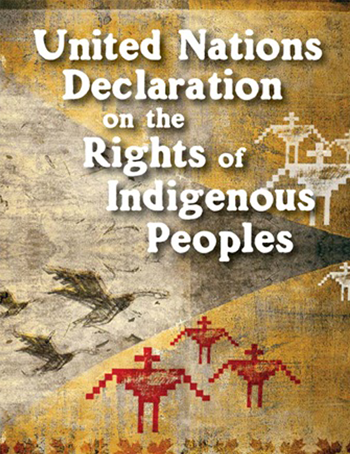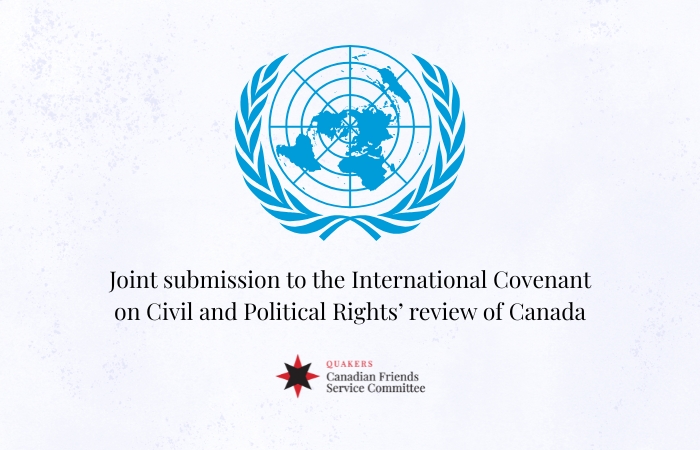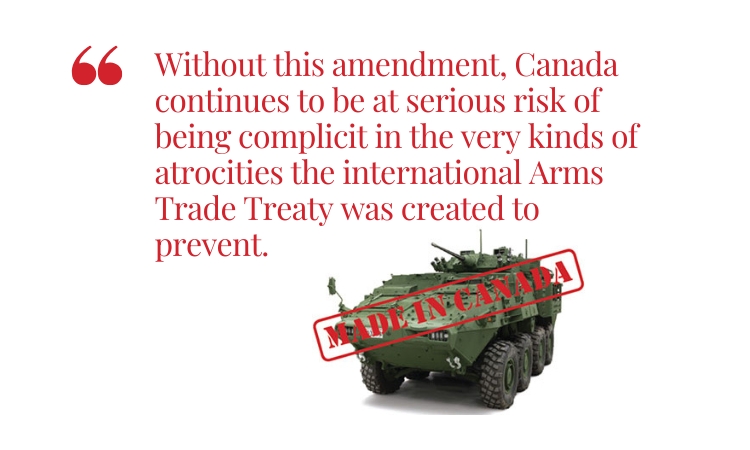
Does your rage change the world?
September 9, 2025
Canadian Friends Service Committee (Quakers) joins 300+ organizations in the Draw the Line campaign
September 16, 2025![]() The adoption of the Declaration by the UN General Assembly in 2007 marked the culmination of decades of advocacy by Indigenous human rights defenders. Many put their lives on hold for years to realize this achievement. The Declaration is the first human rights instrument where the rights holders themselves, Indigenous Peoples, played a direct role in the development and negotiation of the text.
The adoption of the Declaration by the UN General Assembly in 2007 marked the culmination of decades of advocacy by Indigenous human rights defenders. Many put their lives on hold for years to realize this achievement. The Declaration is the first human rights instrument where the rights holders themselves, Indigenous Peoples, played a direct role in the development and negotiation of the text.
The 2021 United Nations Declaration on the Rights of Indigenous Peoples Act requires consistency between the laws of Canada and the provisions of the Declaration and commits the federal government to a process of implementing these rights. This includes the creation of a properly funded Indigenous-led monitoring mechanism focused on Indigenous Peoples’ human rights.
Unfortunately, Canada is failing to act on critical steps needed to honour its commitments to the rights of Indigenous Peoples. In their 2025 report evaluating its progress on implementation, the federal government states they are “behind” in creating an Indigenous Peoples’ human rights monitoring mechanism. This is a significant concern given that such a mechanism is an essential component of implementation not only to protect against the infringement of rights, but also to mandate redress in cases of their violation.
Learn more about the UN Declaration.
There is no formal process for the government to work with Indigenous Peoples in the review of laws, regulations, and policies and little meaningful progress toward the much needed reforms. Instead, government departments continue to make unilateral claims about Canada’s laws and policies already aligning with the Declaration.
This year, we welcome the creation of an Indigenous-led, independent UN Declaration Act Action Plan Advisory Committee. This is a promising development towards implementation. We look forward to seeing how the Advisory Committee will provide advice on key measures in the Shared Priorities chapter of the Action Plan. In addition, the government must still meet their obligation to create an Indigenous-led monitoring mechanism and take action to ensure the consistency of Canada’s laws with the Declaration. This must take place through consultation and cooperation with rights holders, Indigenous Peoples.
The Minister of Justice recently wrote that the Declaration Act “continues to chart a path forward to a future where the human rights of Indigenous peoples, as affirmed in the UN Declaration on the Rights of Indigenous Peoples, are recognized and respected, upheld and implemented.”
The Declaration was adopted by United Nations General Assembly on September 13th, 2007, eighteen years later, it is past time for this future to become a present reality where the rights of Indigenous Peoples are implemented and respected.
Download this joint statement in PDF.
Statement from the Coalition for the Human Rights of Indigenous Peoples, endorsed by:
Amnistie internationale Canada francophone, Assembly of First Nations, British Columbia Treaty Commission, Canadian Friends Service Committee (Quakers), Indigenous World Association, Union of BC Indian Chiefs, Tl’azt’en Nation (Canada), Tsilhqot’in National Government
Cheryl Knockwood, Chair, Nova Scotia Human Rights Commission; Grand Chief Edward John (former Expert Member UNPFII- North America); Hup-Wil-Lax-A, Kirby Muldoe, Tsimsian/Gitxsan Grassroots Human Rights Defender; Katsi’tsakwas, Ellen Gabriel; Lea Nicholas-MacKenzie





